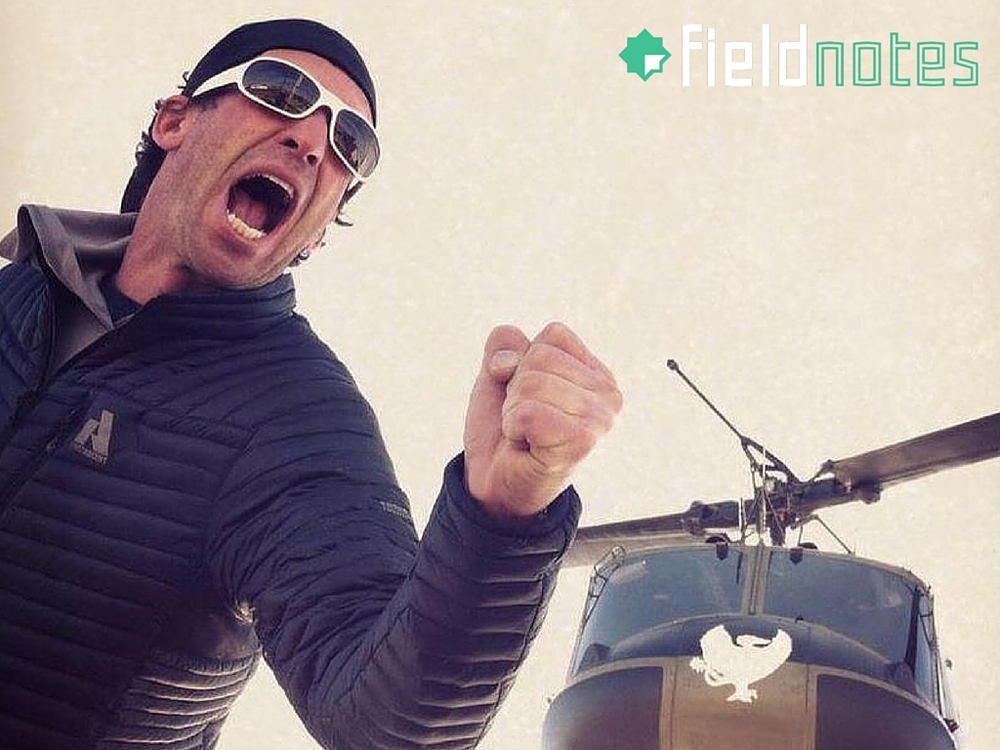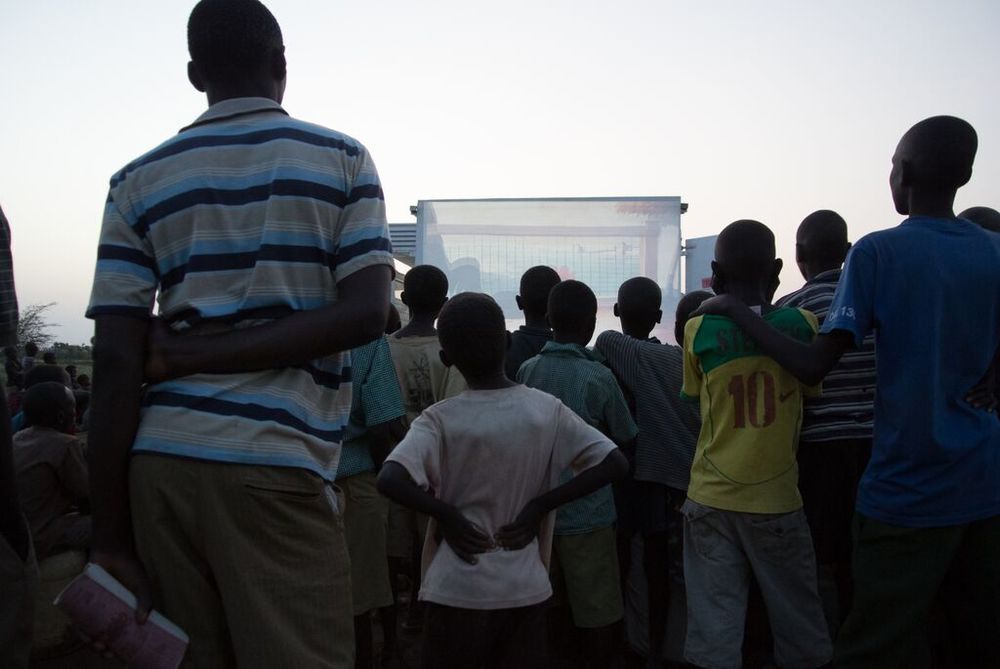
Photo by Ben Knight
Field Notes Interview #62: Filmmaker, Stash Wislocki

Right at this very moment, there’s a good chance that Stash Wislocki is up to something really interesting. Whether he might be climbing up an epic mountain or documenting the political climate in Colorado, this Telluride-based filmmaker is intentional in everything he does. Wislocki steps away from one side of the camera lens and is the Festival Producer for Telluride MountainFilm — a wonderful festival nestled in the mountains of Colorado. The aim is to bridge the gap of ideas to an audience. Each film he chooses to work with, whether his own or the films in his festival, they always have a vision of community at the core. And that’s exactly what he’s been able to achieve.
Stash answered some of our question amidst his busy schedule about his creative process and how he handles the constant variables and challenges within every project.
M: Why film? What compelled you to be a filmmaker?
SW: I call my parents liberal extremists. They brought my sister and me up in a house that was politically charged. Nothing could be watched or read without a family debate in which it seemed we were always trying to out liberal each other. I guess that’s why I moved toward film and, more specifically, documentaries. Docs don’t have to abide by a strict journalistic code; filmmakers can have opinions. “DamNation” and “The Cove” are great examples.
That’s why I also work for Mountainfilm. It’s this powerhouse of a film festival that combines activism and film. We screen docs and invite speakers, artists, scientists and activists to present throughout the festival. My favorite part of Mountainfilm is the audience questions, which are always about the film’s topic and how to effect change. I’ve been to a lot of film festival and that’s not always the case. We strive to get the audience to do more then just appreciate a film. We want them to activate.
M: What’s the most rewarding and frustrating part about being a filmmaker?
SW: In 2012, I worked for FilmAid in northern Kenya at the Kakuma Refugee Camp. We held outdoor screenings for upwards of 5,000 refugees at a time around the camp. The refugees came from all over Africa and spoke many different languages. The films ranged from educational (public health) to cartoons and comedies. It was amazing to see how film had a positive impact, even under bleakest of circumstances. It was truly rewarding work.

I work for a film festival, so I guess it would be unfair to say deadlines because I impose so many on filmmakers. But damn—I hate meeting deadlines. As a filmmaker, I’m also frustrated when I’m editing and know what I’m working on isn’t great. I want it to be great, but either the story hasn’t come together or it just doesn’t feel the way it should, which means I have to keep working on it. Really it may just be insecurity, never being sure it’s as good as people say—and almost everyone will tell me its great, except for my parents. They always give me honest, feedback. A co worker calls them Statler and Waldorf, from the Muppets.
M: How do you feel music has a role in film?
SW: I love the way music can change the mood of a scene or interview. If it’s done right, it’s powerful to watch and can show a subject in a much different light. I when hear scores from films and it puts me into the mood of that film. It can be very powerful and I love the feeling of transformation music can have on you.
M: How do you feel music is misused in film?
SW: It’s the manipulative factor that kills me. If you want me to feel a certain way, the music should enhance my feelings not dictate them.
M: What do you hope your audience will take away when they watch your films?
SW: For Mountainfilm, the hope is that the audience is more than simply inspired. We aim to motivate people toward action because of what they saw or experienced at the festival. We spend a lot of time encouraging our audience to take the next step. The same goes for the last film I made, “Dear Governor Hickenlooper” an anti fracking film composed of shorts from Colorado filmmakers that were then merged into feature film. We had a goal to not only inspire people, but to get them to stand up for our state, Colorado, and tell the governor not to frack.
M: What’s the most recent album you’ve listened to?
SW: Everything by Nathaniel Rateliff and the Night Sweats.
M: How do you know when you’re finished with a project?
SW: I never feel finished, but when it plays at its first festival then its in the can and hopefully I don’t have to reopen it. When I re-watch a film a few months it kills me. I can’t remember why I made certain cuts, the moral of that story, don’t watch them again.
M: What makes a good story?
SW: I think anything can make a good story as long it has an arc. I honestly believe that. I see so many brilliant films with stories that don’t sound interesting until I see them. Look at Ben Knights’s short “Denali“: He made the story of a dog and a man in 8 minutes yet it gives you such insight to their time together. I am a cat person, so he had to move me past that hurdle too. Also, think if someone pitched you Man on Wire, the doc about a Frenchman tight rope walking the World Trade Center 35 years later. On the surface it would sound flat, but when you watch it, it seems bigger then life.
M: What’s coming up on the horizon in your life?
SW: I’m working on two docs and producing Mountainfilm for 2016, but, more importantly, I’m getting married in October and wide open for any music suggestion at the wedding.

